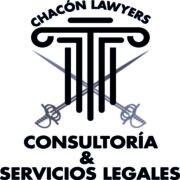Best Administrative Lawyers in Colombia
Share your needs with us, get contacted by law firms.
Free. Takes 2 min.
Or refine your search by selecting a city:
List of the best lawyers in Colombia
About Administrative Law in Colombia
Administrative law in Colombia governs the activities of administrative agencies of government. It is a branch of public law that deals with the decision-making of government administrative units, which includes rulemaking, adjudication, or the enforcement of a specific regulatory agenda. This area of law encompasses a variety of legal principles and procedures that control and regulate the formation, operation, and decision-making processes of Colombia's public administration.
Why You May Need a Lawyer
Individuals and businesses may require legal assistance in administrative law for several reasons. Common situations include navigating complex government regulations, challenging administrative decisions, filing claims against governmental bodies, dealing with public law permits and licenses, or engaging in decentralized administration and disciplinary grievances. A lawyer with expertise in this area can provide valuable guidance and representation in these matters.
Local Laws Overview
Colombian administrative law includes a comprehensive legal framework that regulates the actions of public authorities. Some key aspects include:
- The Administrative Procedure and Contentious Administrative Code, which governs the processes that individuals must follow when interacting with public administration.
- The principle of legality, ensuring that all administrative actions have a legal basis.
- Administrative acts and their validity, which can be challenged on grounds such as lack of competence, improper procedures, or violation of rights.
- The role of the Office of the Inspector General (Procuraduría) in overseeing administrative discipline and public conduct.
Frequently Asked Questions
What is the role of the administrative courts in Colombia?
Administrative courts in Colombia handle disputes between individuals and public administration entities. They have jurisdiction over cases involving administrative acts and public law contracts.
How can I challenge an administrative decision?
Individuals can challenge administrative decisions through the contentious administrative procedure, which involves filing a claim before an administrative judge or tribunal.
What is the statute of limitations for filing an administrative claim?
The statute of limitations varies depending on the type of administrative action. For example, claims for the annulment of general administrative acts typically have a four-month period from the date of publication.
What protections do I have against arbitrary actions by public administrators?
Colombian administrative law is built on principles of fairness, legality, and due process designed to protect individuals from arbitrary and abusive acts by public officials.
Can administrative acts be overturned?
Yes, administrative acts can be annulled if they are found to lack a legal basis, violate laws, exceed authority, or infringe upon rights.
What is a tutela action?
A tutela action is a constitutional legal mechanism in Colombia to protect fundamental rights when an immediate remedy is needed, applicable in both administrative and other legal contexts.
Are there fees for filing an administrative complaint?
Filing fees may apply, but they vary depending on the nature of the case and specific court rules. It is advisable to consult with legal counsel or the court for precise information.
How are sanctions imposed by administrative bodies challenged?
Sanctions imposed can be disputed through the administrative objection procedures and appealed to the competent courts for legal recourse.
What are public law contracts?
Public law contracts in Colombia are agreements between a public entity and a private party for goods, services, or works, governed by administrative law principles.
How does decentralization affect administrative law?
Decentralization in Colombia delegates certain powers from central government to local or regional administrations, affecting how administrative law is applied at different government levels.
Additional Resources
For individuals seeking additional information, the following resources may be helpful:
- The Ministry of Justice and Law (Ministerio de Justicia y del Derecho) provides legal support and resources.
- The Office of the Inspector General (Procuraduría General de la Nación) oversees public conduct and accountability.
- The Council of State (Consejo de Estado) serves as the highest administrative court.
- Central administration websites often have sections detailing procedural manuals and citizen services.
Next Steps
If you require legal assistance in administrative matters, consider the following steps:
- Consult with a lawyer specializing in administrative law. They offer tailored advice and representation in complex cases.
- Gather all related documentation and evidence to support your case or query, which will be useful in legal consultations.
- Contact local government offices or inquire online for guidance on specific procedural requirements or issues.
- Consider informal resolution mechanisms, like mediation, when directly negotiating with administrative bodies is an option.
Lawzana helps you find the best lawyers and law firms in Colombia through a curated and pre-screened list of qualified legal professionals. Our platform offers rankings and detailed profiles of attorneys and law firms, allowing you to compare based on practice areas, including Administrative, experience, and client feedback.
Each profile includes a description of the firm's areas of practice, client reviews, team members and partners, year of establishment, spoken languages, office locations, contact information, social media presence, and any published articles or resources. Most firms on our platform speak English and are experienced in both local and international legal matters.
Get a quote from top-rated law firms in Colombia — quickly, securely, and without unnecessary hassle.
Disclaimer:
The information provided on this page is for general informational purposes only and does not constitute legal advice. While we strive to ensure the accuracy and relevance of the content, legal information may change over time, and interpretations of the law can vary. You should always consult with a qualified legal professional for advice specific to your situation.
We disclaim all liability for actions taken or not taken based on the content of this page. If you believe any information is incorrect or outdated, please contact us, and we will review and update it where appropriate.
Browse administrative law firms by city in Colombia
Refine your search by selecting a city.















